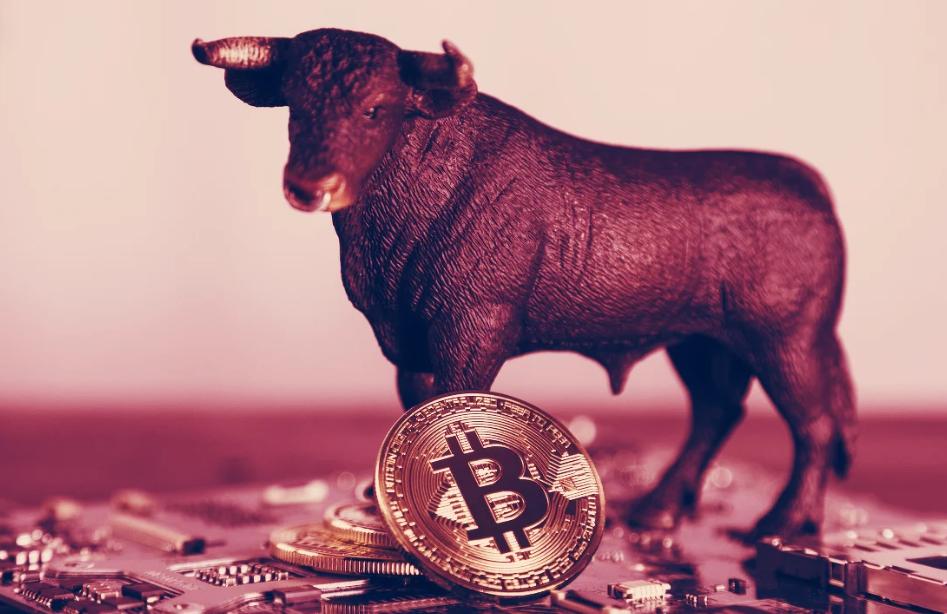Goldman Sachs restarts Bitcoin trading, is the veteran financial giant accelerating its布局?
This article was published on Liandede, written by: Mao Li Wulang
Goldman Sachs recently revealed its entry into the Bitcoin futures market. According to foreign media reports, Goldman Sachs will not only list Bitcoin futures trading on the Chicago Mercantile Exchange (CME) but will also offer derivative trading of Bitcoin non-deliverable forward contracts, without providing Bitcoin spot trading. Although there has been no media disclosure, this derivative trading marks Goldman Sachs' first foray into the digital currency space.
Goldman Sachs' move signifies a faster pace of action from this traditional financial giant. The talents originating from Goldman Sachs are spread across the globe, and they will have a significant impact on digital currencies, blockchain, and even CBDC projects in Europe, America, and Japan.
Goldman Sachs Reestablishes Cryptocurrency Trading Team
Foreign media reports indicate that Goldman Sachs partner Rajesh Benkataramani has revealed in an internal memo that he has formed a cryptocurrency trading team. This team is primarily responsible for trading various assets in world currencies and emerging markets. The team was actually established in 2018 but had remained inactive for some unknown reason.
On March 11, with the resurgence of the digital currency investment market, along with the entry of large institutions and numerous capital players, Goldman Sachs was compelled to reactivate its cryptocurrency trading team. Last week's announcement also marked a step forward for Goldman Sachs.
In fact, last month, an internal memo from Goldman Sachs indicated plans to offer Bitcoin and other digital asset investment tools to clients in the second quarter. At that time, Goldman Sachs submitted an application to provide notes linked to ETFs that may be related to cryptocurrencies, especially Bitcoin. SEC filings show that Goldman Sachs plans to issue $15.7 million in ETF-linked bonds.
The New SEC Chairman from Goldman Sachs
Since Gary, the new chairman of the SEC, took office, large institutions have become more proactive. Gary's positive attitude towards the digital currency market and his announcement of active regulatory arrangements have prompted large institutions to prepare to get involved. For more details, refer to previous reports from Liandede: SEC Chairman Gary Gensler: Large Institutions' Sentiment Analysis Tools, Trading Signals, and Exchanges Should All Be Regulated.
Just two weeks ago, Morgan Stanley also announced that it would launch a Bitcoin investment fund for clients, becoming the first major U.S. bank to offer a Bitcoin fund to clients. Citibank also stated in an interview with the Financial Times that it is considering entering the cryptocurrency trading and custody business. Major U.S. financial firm BNY Mellon has announced the launch of custody services.
However, according to Goldman Sachs' memo, on May 7, Goldman Sachs launched a digital asset dashboard to provide clients with daily and intraday cryptocurrency market data and news. This coincides with Gary's strong desire to manage sentiment analysis tools and other investment analysis tools, which likely requires further in-depth research on specific settings.
It is important to note that Goldman Sachs, as a top institution in the investment world, has a global network of connections, and even the newly appointed Gary comes from Goldman Sachs.
How Does Goldman Sachs' Global Talent Network Operate?
Beyond these superficial direct relationships, let’s take a broader look at Goldman Sachs' talent network across the industry.
Last week, Galaxy Digital, which made waves in the cryptocurrency industry, acquired BitGo for $1 billion. Notably, Galaxy's CEO Michael Novogratz is a former partner at Goldman Sachs. For more details, refer to previous articles from Liandede: The Largest Merger in the Cryptocurrency Industry: Galaxy Digital to Acquire BitGo for $1 Billion. After the merger, the parent company Galaxy Digital stated that it would undergo a major restructuring and return to the U.S. market. The influence of Goldman Sachs in this process is evident.
Coinbase, the first publicly traded cryptocurrency company in April, was also managed by Goldman Sachs. One of Coinbase's co-founders, Fred Elsam, hails from Goldman Sachs.
Although individuals from Goldman Sachs faced unprecedented scrutiny during the Trump administration, the financial talents from Goldman Sachs are not only industry leaders but also possess very solid networking resources.
This is especially true in Japan.
Goldman Sachs Network in the Japanese Digital Currency Trading Market
The founder of the Japanese cryptocurrency exchange BitFlyer, Yuzo Kano, also comes from Goldman Sachs. Therefore, when the Japanese digital currency trading field underwent significant changes in 2017, Yuzo Kano decisively turned to the U.S., establishing a U.S. subsidiary and expanding into Europe. For more details, refer to previous articles from Liandede: On the Last Day of the Fiscal Year, the Japanese Cryptocurrency Trading Market Reverses, BitFlyer Changes Leadership Three Times in Three Years, Line Data Leak Under Investigation.
The prominent Monex Group's CEO, Oki Matsumoto, is also one of the earlier entrepreneurs from Goldman Sachs. After joining Goldman Sachs in 1990, he left to start his own business in 1999, and within just a year and a half, Monex Group was listed on the Tokyo Stock Exchange Mothers, becoming the sixth-ranked company in the industry.
The actions of established financial institutions may trigger a series of new movements. Last August, after Goldman Sachs appointed Mathew McDermott as the head of digital assets, he stated in an interview with CNBC that in 5-10 years, all assets and liabilities would be built on blockchain technology, and he had already doubled the number of personnel in Asia and Europe last year.
He also brought in Oli Harris, the head of digital asset strategy at JPMorgan, Goldman Sachs' main competitor. Harris was involved in the JPM Coin project. For more details, refer to previous articles from Liandede: Visa Enters CBDC, PayPal and Mastercard Follow Suit, and JPMorgan Can't Sit Still.
The exchange of resources seems destined to reshape this complex digital currency market, as the involvement of large institutions and prominent figures makes the already murky waters of the blockchain space, digital currency trading market, and central bank digital currency field even less clear.











